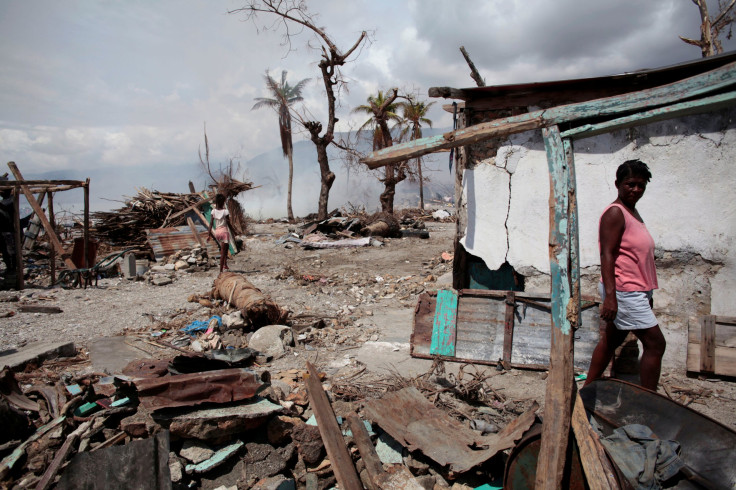When Will Haiti Hold Presidential Elections? Date Delayed Again By Hurricane Matthew Flooding And Months Of Violence

As Hurricane Matthew barreled toward Haiti, killing hundreds of people earlier this month, the Caribbean nation’s Provisional Electoral Council moved its elections from Oct. 9 to Nov. 20. And that’s far from the first time they’ve been delayed.
The first round of Haiti’s parliamentary elections was held more than a year ago on Aug. 9, 2015, and first round presidential elections were set for Oct. 25, 2015, according to Sandra Honoré, the head of the United Nations’ (UN) Stabilization Mission for the country. The U.S., in an effort to facilitate credibility in Haiti’s elections, spent $33 million on “monitors,” “observers” and “training” for the voting process, according to a briefing from Deputy Assistant Secretary of State and Special Coordinator for Haiti Kenneth H. Merten.
The State Department, however, did not achieve its goals. Violent protests swept through Haiti in late November 2015, as Jovenel Moise, a supporter of then-incumbent President Michel Martelly, failed to win a majority with just 33 percent of the vote, over opponent Jude Celestin’s 25 percent.
While 14 of the 20 parliamentary Senate seats and 92 of 119 seats in the Chamber of Deputies were filled, the presidential election runoff between Moise and Celestin was postponed to January of this year. Then, as the parliament began functioning on the first day of the new year, the presidential election “did not take place in January,” according to Honoré. Once again, violent protests took place that month and through February, with Haitians clashing against police, who used tear gas and stun grenades to push back demonstrators.
On Feb. 7, the incumbent former pop star Martelly’s five-year term ended, forcing Senate President Jocelerme Privert to take over as provisional president for a maximum term of 120 days, with the election for the nation’s official president rescheduled for April 24. On April 25, UN Secretary General Ban Ki-moon urged completion of the elections “without delay” as a means of returning Haiti to “ensure the prompt return to constitutional order, as the country can ill afford a period of prolonged transitional governance while facing major socio-economic and humanitarian challenges.”
When Privert’s 120-day tenure as provisional president ended on June 15, the UN’s Haiti stabilization group called for the country’s National Assembly to act in order to prevent a government vacuum and prevent Haitians from once again reverting to violence. By then, Privert had already given up on the prospect: On June 6, he said he would stay in office until the next year, with the vote delayed to Oct. 9, and the runoff scheduled for Jan. 8, 2017.
Then, along came Matthew. In addition to killing 1,000 people, the Category 4 hurricane left tens of thousands homeless, sending people in search of shelter to schools that had been intended for polling stations, Reuters reported.
How likely is it that an election will take place in November? A leaked report from the Organization of American States’ Electoral Observation Mission offered an outlook that was doubtful at best. In a leaked document published by the Miami Herald, the mission said that flooding, limited road access and other infrastructure damage would be “problematic” in light of the upcoming vote.
© Copyright IBTimes 2024. All rights reserved.






















